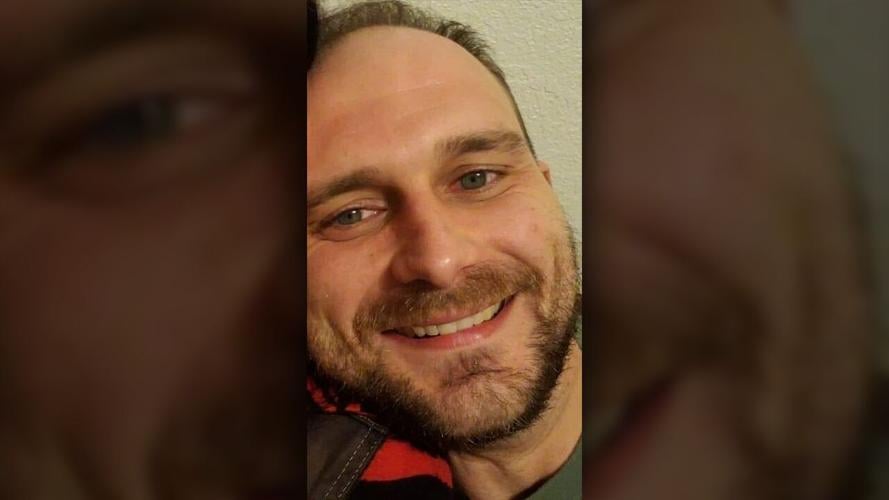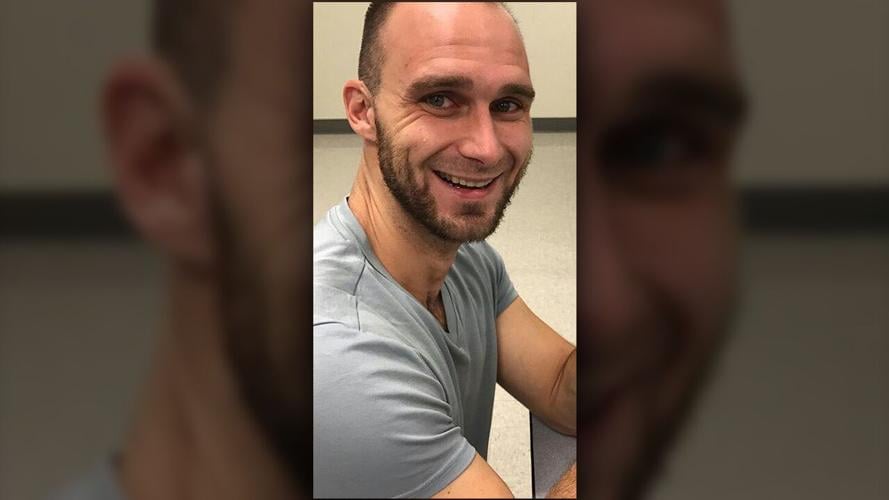LOUISVILLE, Ky. (WDRB) -- A new report reveals a mentally ill man sat naked and deteriorating inside his cell at the Jackson County Jail for 20 days with no medical attention before his death.
But after a nine-month investigation, Jackson County Prosecutor Jeffrey Chalfant said Wednesday that no one will be charged in the death of Joshua McLemore.
New documents released Wednesday by Chalfant show a pattern of troubling treatment emerging from the jail.
A brother, son and college graduate, McLemore died on Aug. 10, 2021 after jail staff had him hospitalized. McLemore, a bipolar, schizophrenic in distress, had been arrested weeks earlier, on July 20, after assaulting a nurse at the Schneck Medical Center, according to court documents.
McLemore was already in decline before heading to jail on July 20. He was picked up, naked and disoriented and taken to Schneck Medical Center where he was arrested after pulling a nurse's hair.
Those documents show McLemore's court appointed attorney filed a motion on July 29 to determine his competency and for an insanity evaluation. He was taken to Schneck Medical Center in Seymour, Indiana, on Aug. 8. After staff determined McLemore was in critical condition, he was transported to Mercy West Hospital in Cincinnati, Ohio, where he died on Aug. 10.
An Indiana State Police (ISP) investigation, which was requested by Jackson County Sheriff Rick Meyer on Aug. 27 following his department's investigation, found McLemore never received a medical evaluation when he was booked into the jail.
The investigation also found jail staff often saw McLemore naked in his cell, rarely eating, drinking or sleeping for the 20 days he was incarcerated.
"Joshua was held in conditions that were squalor, unsanitary for days on end that he was not taking in fluids, that he was not taking in food for days on end and that he lost nearly 45 pounds in less than three weeks when he had not even been convicted of a crime," said attorney Edwin Budge. "Enough said."
During that time, McLemore was taken out of his padded jail cell just three times for it to be cleaned and in that nearly three weeks only showered twice.
"Something happened that should not have happened," said Budge.
Budge, a nationally known civil rights attorney representing McLemore's family, intends to file a federal lawsuit against the Jackson County Jail.
"We're going to be fighting, fighting hard for the memory of Joshua McLemore," he said.
In a document explaining his decision not to file charges, Chalfant wrote that McLemore "spent virtually the entire time in a private, padded cell" for the duration of his incarceration. A camera in the cell recorded McLemore whenever motion was detected, according to Chalfant.
ISP watched all recorded video during their investigation, along with the Jackson County Prosecuting Attorney. They also looked at medical records, spoke with hospital staff and reviewed reports and records from the jail pertaining to McLemore.
The county coroner said McLemore died of natural causes. An autopsy shows he died of organ failure after refusing to eat or drink with an altered mental status, as well as meth withdrawal as a contributing factor, but jail staff never brought in a mental health professional to see him.
An ISP investigator said the department's investigation showed McLemore likely died because of a "prolonged lack of attention by Jackson Jail staff as a group," adding that "lots of jail employees saw Mr. McLemore every day and did not see a change until near the end."
The investigator told Chalfant that jail staff logged information they thought was important. An entry on July 22 stated that when McLemore was asked if he wanted a shower and jail staff to clean his cell, he "tried to push his way out of his cell and said that he did not want a shower."
On July 25, a jail employee noted that McLemore was "striking himself in the back of his head," so they put him in a restraint and cleaned his cell. During that time, the employee said McLemore could be heard making "suicidal comments about jumping off a bridge."
The jail's commander spoke with McLemore's mother on July 27 in an effort to obtain more information about his medical history. She stated that her son "suffered from manic episodes that were drug induced, had some mental health issues, and had been in a mental institution four times in Mississippi."
On July 31, employees wrote that McLemore's cell was littered with trash and food, which he was "rolling around" in. They also noted that he "was not able to respond and was not speaking clearly" when asked if he wanted to shower and eat. He was removed from his cell, given a shower and his cell was cleaned.
On Aug. 8, when giving McLemore a shower, jail staff realized he needed medical attention.
The ISP investigator told Chalfant that individual jail employees didn't realize McLemore "never asked to use the bathroom and that he rarely ate or drank" because of the four-hour blocks of time they monitored a video screen that had multiple camera views. Staff "did not have the opportunity to continuously view" McLemore in his cell as they had other duties, only allowing them to look at the video in those four-hour blocks.
In his report, Chalfant wrote that ISP's investigation "did not uncover any evidence indicating that Mr. McLemore was knowingly or intentionally killed by another person, nor any evidence that his death was caused by a knowing, intentional, or reckless."
Because of that, Chalfant said there is no evidence showing McLemore "was the victim of murder, voluntary manslaughter, involuntary manslaughter, or reckless homicide."
The prosecutor also wrote that he and ISP's investigator watched video of McLemore from the duration of his incarceration, which showed "that he was mostly not eating, mostly not drinking, mostly not sleeping, never asked to use the bathroom, and was in a dissociative state."
While jail staff noted that McLemore wasn't eating, his cell was messy, he was dirty and was largely non-responsive, they "did not connect this information together and infer that Mr. McLemore needed medical attention," Chalfant wrote.
The prosecutor said reasonable care are matters of civil law and not criminal law.
It's the exact same conclusion from the same jail and same prosecutor who found no criminal wrongdoing in the death of Ta'Neasha Chappell. The Louisville mother died in agony about three weeks before McLemore.
Audio recordings obtained by WDRB News following Chappell's death revealed she begged for help for more than 15 hours.
Two inmate deaths, three weeks apart and a documented pattern of neglect at the Jackson County Jail.
"Your viewers can make their judgement about whether this should ever, ever happen in an American jail, and I think that the answer is no," said Budge.
Read Chalfant's full report below or by clicking here.
Related Stories:
- Dozens demand answers at commissioners meeting after Jackson County jail inmate's death
- 'I need help': Audio reveals slow, painful death for Louisville mother in custody of southern Indiana jail
- No charges to be filed in death of Louisville woman in custody of southern Indiana jail
- Rally demands answers for Louisville woman who died in custody of southern Indiana jail
- After seeing toxicology report, family of Louisville woman who died in jail custody plans rally
- Family of Jackson County inmate who died in custody files lawsuit against jail workers
- ER report shows concern Louisville woman ingested poison before death in Indiana jail custody
- Investigation: Louisville woman 'suffered' before death in Indiana jail custody
- Attorneys: Louisville woman who died in custody of southern Indiana jail had bruises on her face
- ISP: Louisville woman dies while in custody at Jackson County Jail
Copyright 2022 WDRB Media. All Rights Reserved.
















